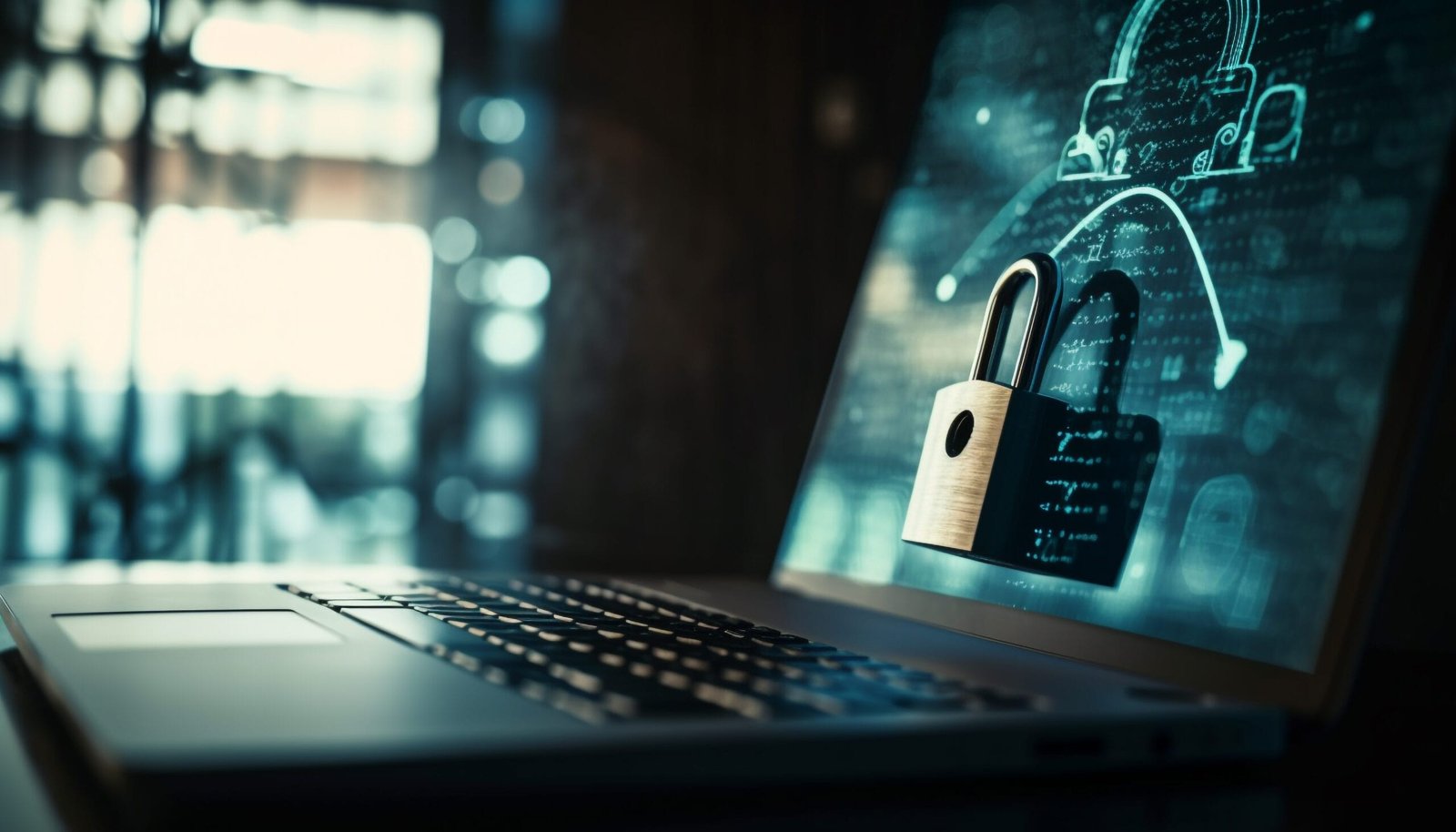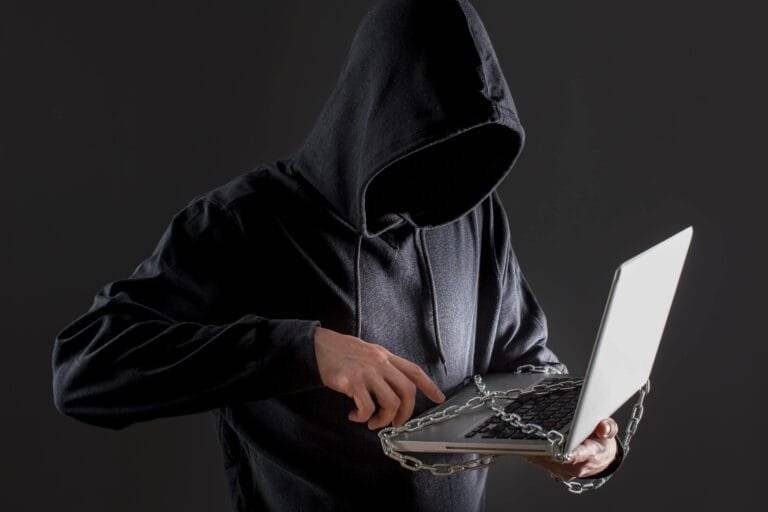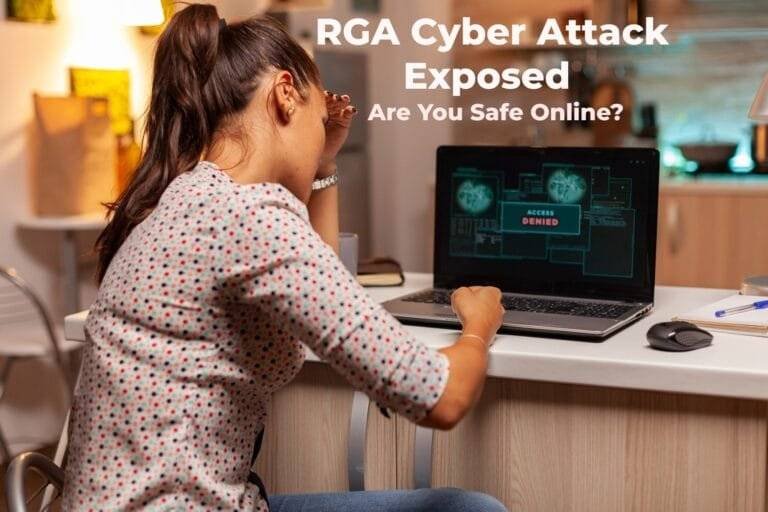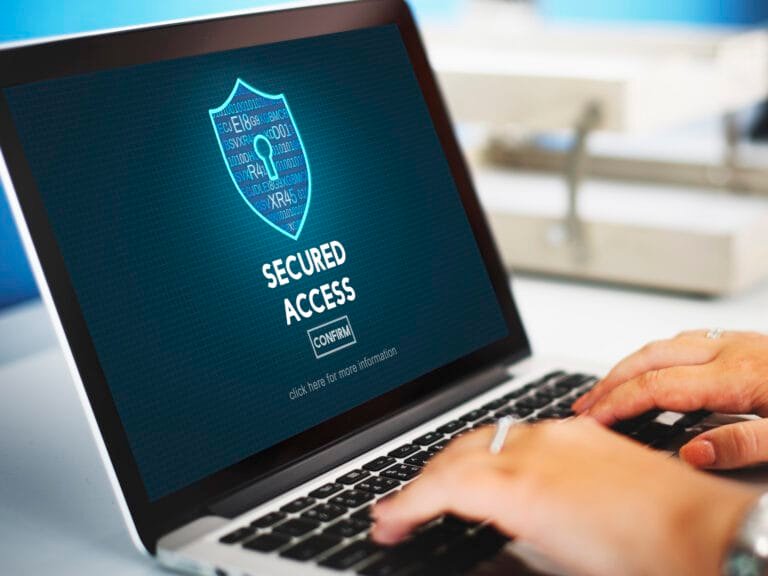Which of the following is not True Regarding Security?
Getting your head around cyber security can feel like looking for a tiny needle in a huge pile of straw. There’s so much advice and so many rules and myths out there for you, that it can get pretty confusing. Today, we’re going to clear up some common mix-ups about what’s true and what’s just a myth when it comes to keeping safe online. Think of it like we’re going on an adventure to bust myths, but instead of chasing ghosts, we’re after cyber security myths!
Before we start, let’s make one thing clear: not everything you hear about cybersecurity is true. Some of the stuff that gets passed around the most is as likely as finding a unicorn in your garden. So, strap in! We’re setting off on a trip to sort out the real deal from the nonsense, making sure you only get the real facts. I promise, by the end of this, you’ll be able to spot a cyber security myth from way off, just like an experienced sailor can see a lighthouse through the wildest storm.
Here are some topics that we cover in this interesting article:
- Security is a goal
- Security is a war that must be won at all costs.
- Security is a process.
- Security includes the necessary steps to protect from harm.
- Common Security Myths
- Debunking the Myths
- The Consequences of Misunderstanding Security
- Call to Action
1-Security is a Goal
The old saying that “security is a goal” sounds good, kind of like the tempting call of a siren, but it’s not exactly right. In truth, security is more like a never-ending journey than a place you just arrived at. Picture it as if you’re sailing on the ocean; you’re always adjusting your sails, dealing with storms, and keeping a sharp lookout, aren’t you? It’s the same with cyber security. It’s a process that keeps on going, changing as new technologies are released and more dangers arise.
Now, don’t get me wrong. It’s really important to have clear goals for your security, like aiming for a lighthouse when it’s foggy. But what shows what security is all about is the constant effort to get better, always fine-tuning your defenses, and always learning. It’s like you’re on a never-ending treasure hunt, and the treasure is keeping your digital stuff safe and sound. So, even though it might seem nice to think of security as just something you can check off a list, it’s more like a path you’re always walking on, keeping an eye out for whatever new challenge might come up next.
2-Security is a War That Must Be Won at All Costs
Imagine a big, exciting battle between cybersecurity experts and the attackers, where everyone is trying to win in this battle. Sounds like something out of a movie, right? But when we talk about keeping the internet secure, thinking of it as this huge battle to win no matter what might not be the best way to look at it. Yes, it’s important, and yes, the attackers are tough, but if you only focus on winning at any cost, you might end up causing problems instead of solving them.
In real life, keeping things secure online is all about finding the right balance. It’s like walking on a thin rope where you have to keep safe on one side but also make sure that things are easy to use and get to on the other. If you focus too much on safety, you might make things so locked up that even the people who should have access find it a big hassle to get in. But if you don’t care enough about security, then you’re just asking for trouble to come in.
The main point is to find a good balance. It’s all about making smart choices that keep things secure but also let your group grow come up with new ideas and win the battle. Imagine it’s more like playing a game of chess than being in a big battle. You need to think ahead, guess what the other player might do, and sometimes you might have to give something up. But the goal isn’t just to beat the other player no matter what; it’s about keeping what’s important safe, without forgetting the reason you’re doing it all.
3-Security is a Process
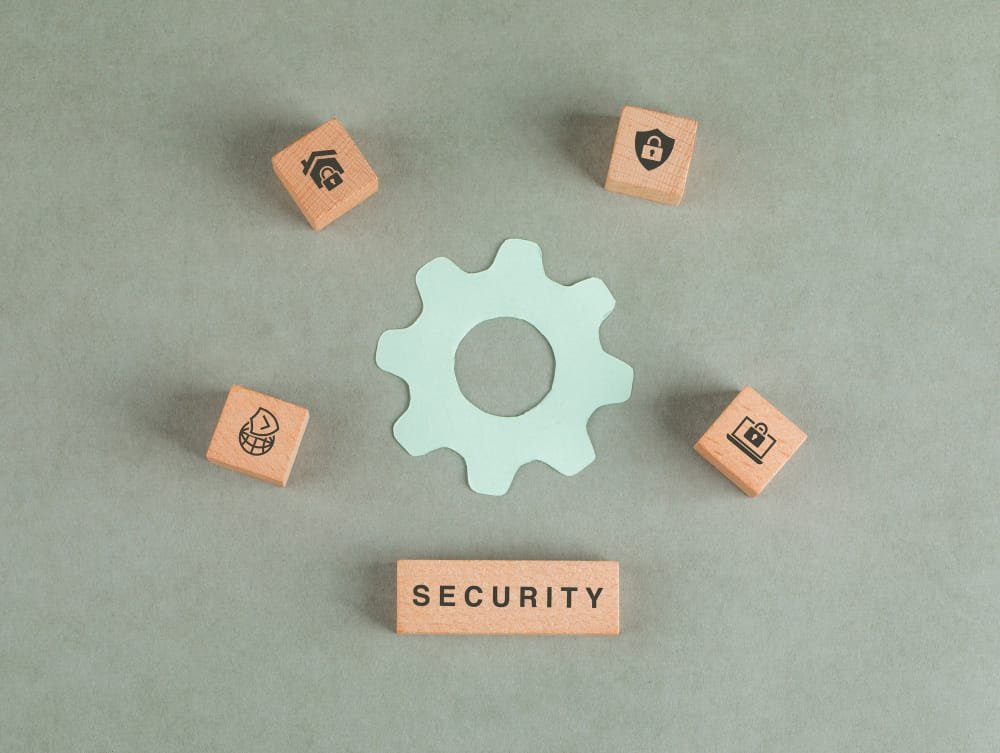
We’ve got it now! If there’s one thing that’s super clear in the tricky world of security things online, it’s this: security is a never-ending task. It’s not like an alarm that you set once and forget about it. Keeping digital stuff secure is more like looking after a garden that’s alive and always changing. It needs your constant attention and care.
Think about it like gardening. You wouldn’t just plant some seeds and then leave them, hoping for a beautiful garden to just happen. Nope, you’d water the plants, pull out the weeds, and keep bugs away. It’s the same with online safety. The starting steps, like firewalls, making data scrambled (encryption), and who gets to see what (access controls), are just like planting the seeds. But you can’t just stop there. The online world keeps changing, with new threats popping up all the time. Your job is to be like a careful gardener, looking after your safety steps, adjusting when new problems come up, and making sure your digital garden is safe from anyone who shouldn’t be there.
This way of doing things, where we focus on the process, also shows how important it is to keep checking how secure we are, updating our systems, and teaching everyone about security to secure our online world which is very important for us. It’s about creating a culture where everyone knows about keeping things safe, and every person in the organization helps keep us all safe. From the newest intern to the most experienced CEO, everyone has a role in keeping things secure and making our security even better. So, when we say security is a process, we’re not just talking about the tech stuff; we’re talking about everyone working together to keep our digital world safe.
4-Security Includes the Necessary Steps to Protect from Harm
When we look into what keeping things safe means, we find a basic truth: security is about being ready before and after any danger. It’s like getting ready for a big storm; you don’t just sit around waiting for the rain to start. You check the weather, secure everything, and make a plan for what to do if things go bad.
In the online world, this means having a full plan that covers many ways to keep safe. Imagine it like building a castle, but instead of using stones and ditches, you use firewalls, secret codes (encryption), systems that spot intruders, and strong rules. It’s all about having many layers of protection, so if one layer fails, the others are still there to stop any trouble.
But keeping things safe isn’t just about stopping bad things from happening. It also means being ready with a good plan if something goes wrong. It’s like having a first aid kit and knowing the way out in an emergency. You hope you won’t need them, but if something happens, you’ll be glad they’re there. This part of security makes sure that if there’s a problem, it can be fixed quickly, the danger is stopped, and everything can go back to normal with little trouble.
Also, real safety means teaching and giving power to everyone involved. It’s about making every worker a careful watcher of their online world, able to spot dangers and know what to do about them. So, while keeping safe includes doing things to prevent problems, it also covers having plans, tools, and the know-how to handle things when stopping problems isn’t enough. This complete approach is what makes a truly safe place, where being ready before anything happens and being able to bounce back are equally important.
5-Common Security Myths
Diving into the world of online security, we often bump into a bunch of myths that stick around like old tales, even though they’ve been proven wrong many times. These myths can trick you into feeling safe when you’re not, like seeing water in the desert that isn’t there. Let’s clear up some of these false ideas and get rid of the confusion they cause.
First, there’s the old “I have nothing worth stealing.” A lot of people think this way, but they’re underestimating the cleverness of online crooks. In today’s world, everyone has something valuable—maybe it’s your info, the power of your computer, or you could just be a step for hackers to get to a bigger prize. It’s like thinking you don’t need to lock your house because you believe you have nothing worth taking. But in truth, every bit of your online presence could be like a treasure to someone with bad intentions.
Another common mistake people make is thinking, “A strong password will keep me safe.” Sure, a good password is important for us, like a helmet for protection, but you can’t just stop there. The attackers out there are pretty smart and use all sorts of tricks, so you need more than just one good password. You should also use things like two-step verification, scrambling your data (encryption), and keeping your programs up-to-date to stay safe online.
Then, some folks believe, “My antivirus software will stop all the bad stuff.” Security programs are indeed really important for fighting off a lot of dangers, but they can’t catch everything. New kinds of attacks pop up all the time, and no program can promise to block them all. It’s like having a super fancy burglar alarm but not bothering to lock your front door; these tools work best when you also follow smart safety habits.
By questioning these myths and learning more about how security works, we make ourselves stronger and smarter when it comes to staying safe online. It’s like getting rid of wrong ideas layer by layer and creating a solid base of knowledge that helps us keep up with the constantly changing risks on the internet.
6-Debunking the Myths
Now that we’ve pointed out the common myths about staying safe online, Now its the time to put these myths to rest, like we’re detectives looking for the truth. We’ll go through these myths one by one and uncover the real facts that are hidden under all the wrong information.
Let’s start with the thought “I have nothing worth stealing.” It’s really important to know that in the online world, everyone can be a target. Everything from your emails to what you look up online can be valuable to someone with bad intentions. Hackers aren’t just after your money details; they can use your info for scams, to trick others, or even sell it in shady places online. It’s like leaving a piece of a puzzle out where anyone can find it, without realizing it’s exactly what someone else needs for their bad plans.
Next, let’s tackle the myth that “a strong password is all you need.” Think of online safety like a knight preparing for battle. Just having a shield (or a strong password) isn’t enough. You need full armor, like using extra security steps (multi-factor authentication), safe internet connections, keeping your software up to date, and always keeping an eye on your accounts. It’s all about having a strong defense ready for whatever new challenges come your way.
Now, about the idea that security software can fix everything, it’s important to set the record straight. Sure, antivirus and anti-malware tools are super important, but they can’t do it all. You also need to be smart about how you act online and keep learning about the new ways threats can show up. It’s like having a fancy alarm system at home but still making sure you lock up and pay attention to what’s happening around you.
By busting these myths, we shine a light on how complex and layered online safety is. It’s not just about the security tools we use; it’s also about how we act, staying informed, and always being ready for what might come next. Getting rid of these myths helps us and our communities build a safer online space that’s based on real knowledge and the ability to bounce back from challenges.
7-The Consequences of Misunderstanding Security
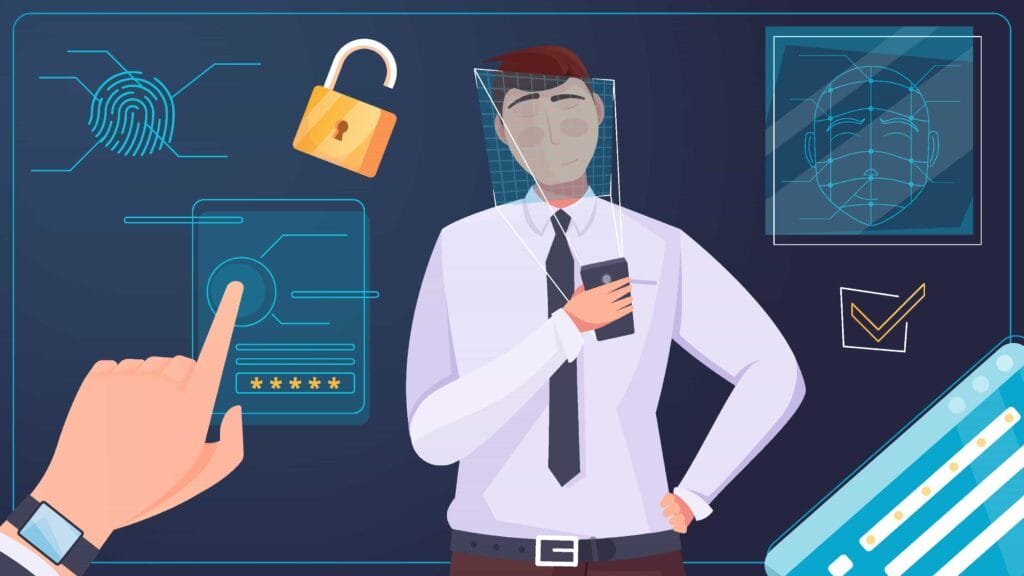
Not understanding security well is like sailing with a wrong map; you might end up in risky places you never planned to go. The problems this can cause might be small annoyances or huge issues that feel like your ship is sinking. Let’s look at what can happen if we don’t get security right.
First, if you don’t think your information is that important, you’re making it easy for hackers. It’s like leaving your house keys out for anyone to find, thinking no one will take them. But this mistake can lead to people stealing your information, taking your identity, or even losing money. Even the little bits of info you didn’t care much about might be just what a hacker needs to cause trouble.
Then, there’s the mistake of relying too much on just one security step, like having a strong password. This can make you feel safe in the online world when you’re not, kind of like wearing a life jacket in a boat that’s leaking. The life jacket might keep you up for a bit, but it won’t fix the leak. Online attacks can come from many angles, and if you don’t have a full plan to keep safe, you might get swamped by digital dangers.
Thinking that just having security software will protect you is also risky. It’s like only looking at the weather report and not getting ready for a sudden storm. When people think security software can fix everything, they might forget other important safety steps, like keeping software up-to-date, making backups, and learning about safe online behavior. This can leave weak spots that hackers can find.
These misunderstandings can cause trouble not just for one person but for whole companies. They can lead to big money losses, harm to your good name, legal problems, and losing the trust of your customers. In the worst cases, they can threaten the existence of a business.
It’s really important to understand all the parts of staying safe online. It means knowing that keeping safe isn’t just about tech stuff; it’s a basic part of how we work and live with technology today. By getting rid of false beliefs and seeing the big picture of security, we can navigate through the tricky waters of the online world, keeping our most precious things safe from those out to steal them.
8-Call to Action
Now that we’ve gone through the tricky myths about cyber security and cleared up some big misunderstandings, it’s time to aim for a safe place in the digital world. This journey of staying secure online doesn’t stop; it keeps going and needs us to be always alert, ready to change, and eager to keep learning. Here’s your place to move towards a safe online environment.
First up, take a good look at what you have online and understand how important it is for you. It’s like knowing the valuable things you’re carrying so you can keep them safe. Remember, in the huge online world, any piece of information can be what a bad guy is looking for and needs to be kept safe.
Then, make sure your online safety is strong in many ways. Don’t just lean on a tough password or one security program. Build a solid safety plan that has different layers, like using two-step verification, keeping your programs up-to-date, staying safe on Wi-Fi, and being smart about tricky emails and scams. Imagine putting together a top-notch team, with each person knowing how to handle different parts of keeping things safe online.
Think of security as something you need to keep doing, not just a one-time thing. Always check and improve your security steps to deal with new risks. It’s like making sure your ship is always ready for whatever comes its way on the ocean.
Study about online security as much as you can. Knowing about the latest dangers and how to protect yourself is like having someone in the lookout tower watching for trouble. The more you know, the better you can prepare.
And don’t forget, we’re all in this online world together. Share what you know, learn from others, and be part of a group that helps each other out. It’s like being part of a group of ships where everyone helps and looks out for each other, making sure we all get where we’re going safely.
What you do can help make the online world safer for you and everyone else. So, let’s lift the anchor and head towards a future where we’re all more secure online, armed with the right knowledge and a strong commitment to keeping things safe.
In conclusion
In our journey through the world of cyber security, we’ve cleared up some common false beliefs, shone a light on the truth, and found a way towards a secure online space. It’s obvious now that being secure online isn’t just reaching a place and stopping; it’s a continuous journey that needs us to be alert, flexible, and work together. By seeing security as something we always need to work on, building strong layers of protection, and keeping up with learning and being aware, we make ourselves stronger against the changing dangers of the online world. So, let’s take what we’ve learned and the decisions we’ve made and guide our way with the understanding that the safest place is the one we create for ourselves by being informed and taking action early in the big, connected world of the internet.
FAQs
Is it true that I don’t need to worry about security if I have nothing of value online?
No, that’s a myth. Every piece of data you have online, from personal information to seemingly trivial details, can be valuable to cybercriminals in ways you might not expect. It’s essential to protect all your digital assets, regardless of their perceived value.
Can a strong password protect me from all cyber threats?
While a strong password is a crucial element of your security, it’s not a standalone solution. Cyber threats are diverse and can bypass password protection through various means. A multi-layered security approach, including two-factor authentication and regular software updates, is necessary for comprehensive protection.
Will security software guarantee my safety from all cyber attacks?
Security software is a critical component of your defense strategy, but it’s not infallible. Cyber threats constantly evolve, and no single tool can offer 100% protection. Staying informed about the latest threats and combining security software with other best practices is key.
Is cyber security only a concern for businesses and tech-savvy individuals?
Cyber security is a universal concern. In our interconnected world, everyone from individuals to large organizations plays a role in the collective security landscape. Awareness and adherence to security best practices are essential for everyone.
How often should I update my security measures?
Security is an ongoing process, not a one-time setup. Regularly review and update your security measures to respond to new threats and vulnerabilities. This includes updating software, revisiting your security settings, and staying informed about current cybersecurity trends and advice.

